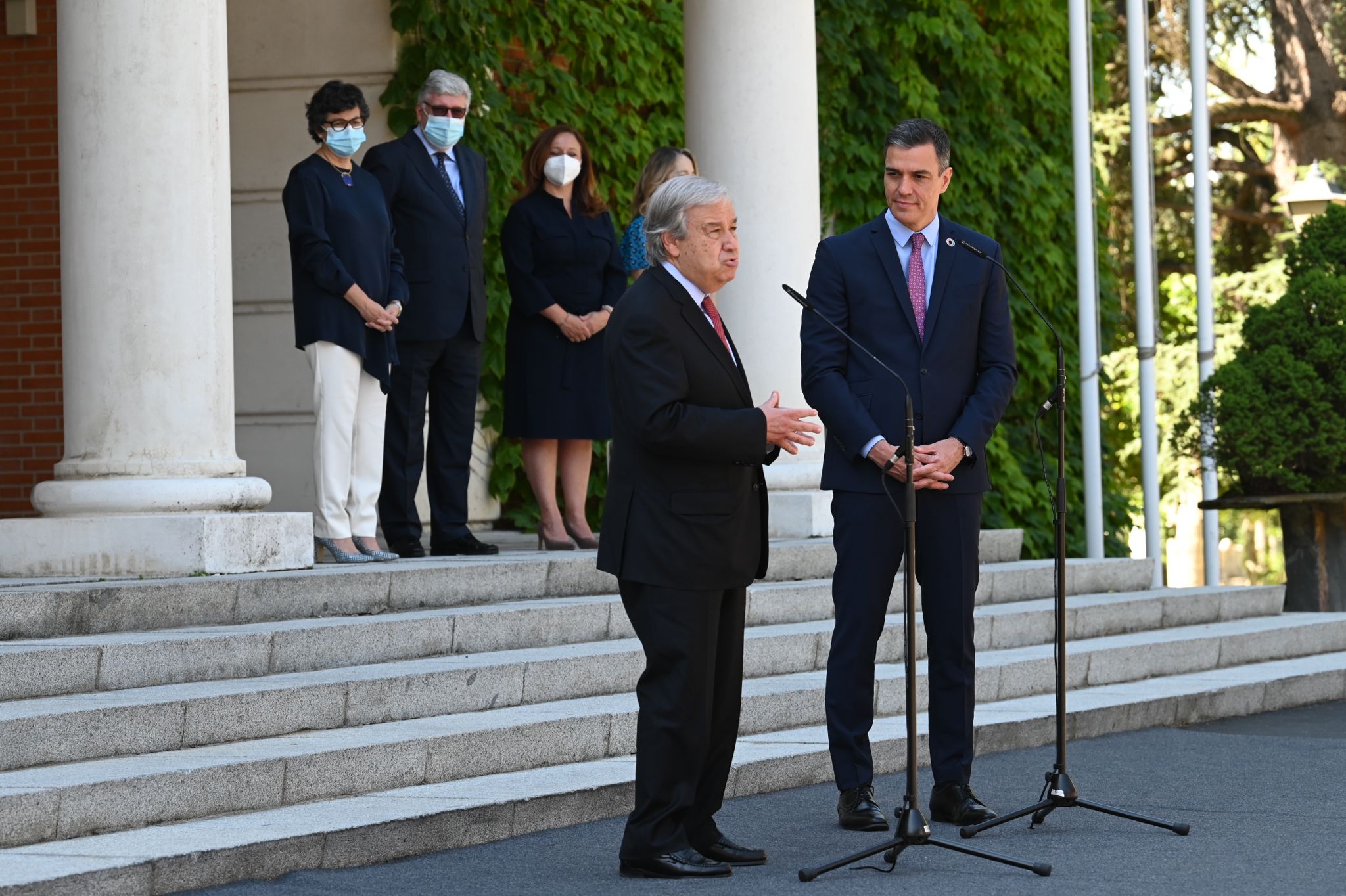The strategy of releasing the Catalan political prisoners and opening dialogue between Spanish and Catalan leaderships has received a new endorsement, and it is an important one. Not the business community or the bishops this time, but rather the Secretary General of the UN, António Guterres, who this Friday was received by Pedro Sánchez at the Moncloa palace in Madrid. He did not want to go into whether Catalonia has the right to self-determination or not, but he did give his blessing to the strategy launched by the Spanish government, based on pardons and the dialogue table between the Spanish state and the Generalitat of Catalonia. It should not be forgotten that the United Nations Working Group on Arbitrary Detention denounced the imprisonment of the pro-independence leaders.
Guterres and Sánchez appeared, with gestures of complicity, on the stairs of the Moncloa before their meeting. Asked about the issue, Guterres said that "it is not the role of the UN Secretary-General to comment on domestic policy issues." However, looking at Sánchez, he gave his endorsement to the new opening: “For me there is an essential general principle. It is the principle that all problems must be solved politically and that dialogue is an essential element in solving the problems of our time”. And he added, in relation to the pardons: "The creation of conditions for dialogue to bear fruit is always very important in our society." At his side, Sanchez gave a big smile in receiving the endorsement.
Guterres did not want to address the issue of self-determination, avoiding the question. Pedro Sánchez, on the other hand, did do so, again denying Catalonia's right to an independence referendum. He emphasized how he had been "very clear" in his speeches this week, especially in the Congress of Deputies. "It is not only a question of constitution, of democratic legality, but also of conviction, of principle on how the new time that we are opening in Catalonia must proceed", he answered.
In this regard, the Spanish prime minister asserted the need to "strengthen social coexistence" and leave behind "everything that separates citizens, which forces them to have to define themselves in one way or another about their identities." This element, he criticized, "undermines everything we want to leave behind." His "formula", he reiterated, "is dialogue within democratic legality, reaching an agreement".
The Socialist leader has insisted on his "agenda for re-counter", which is "rich in content" but does not provide for amnesty or self-determination. And he again addressed president Aragonès, urging him to "listen" to the whole Catalan people and take with him "the whole population, those in favour of independence and those not in favour".
Pedro Sánchez continues adding significant support to his strategic commitment in Catalonia, while the three parties of the Spanish right are increasingly isolated with their appeals to the Supreme Court against the pardons.
Cuixart at the UN
This Thursday, the president of Òmnium Cultural, Jordi Cuixart, denounced Spain's repression of Catalan independence before the UN and urged the international organization to pressure Spain to apply an amnesty for all those facing persecution. Cuixart said this in a speech delivered as a video message to the UN Human Rights Council, warning that Spain's "repression" of independence "is not over" despite the granting of pardons.

